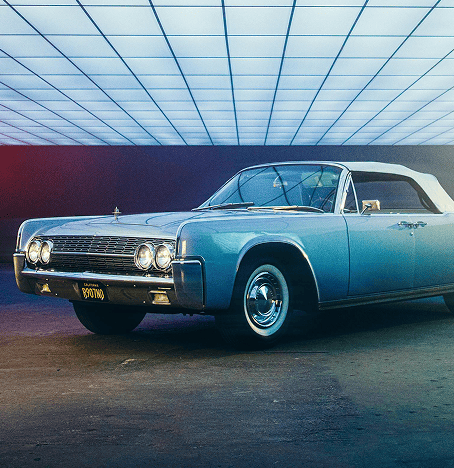Tips to Know Before Buying a Car
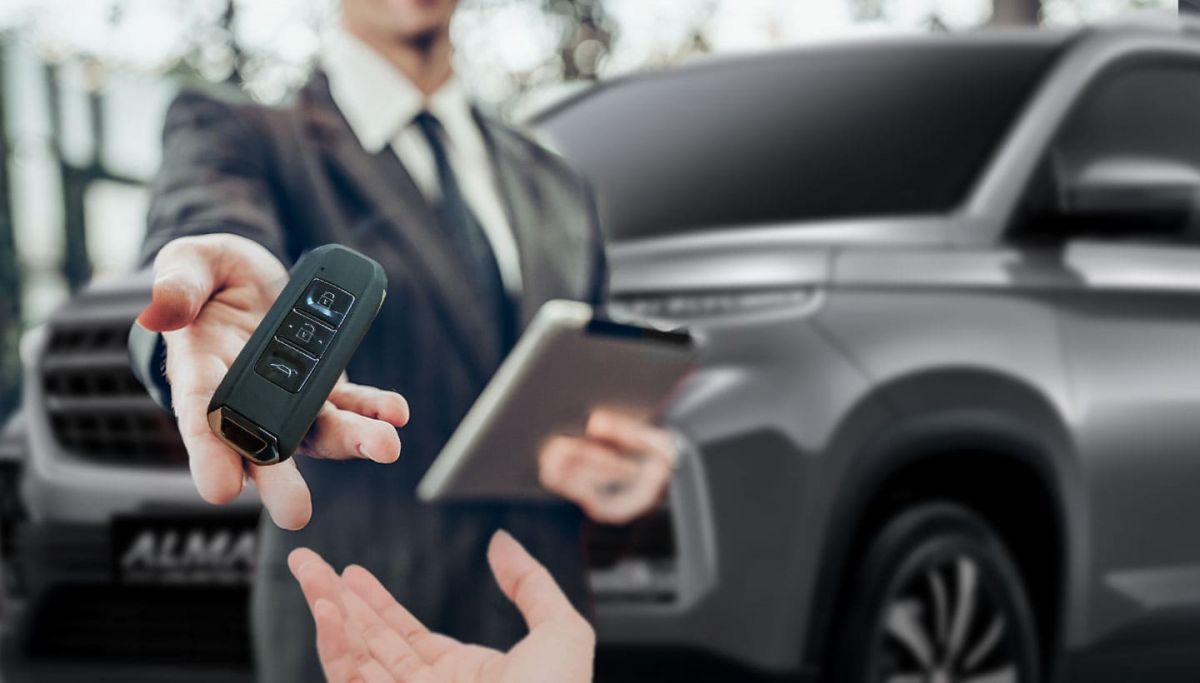
As we all know that buying a car costs us much, such as a lot of money, time and preparations. No matter you are buying a new or used car in the market, here are some suggestions that may help you.
1.Do Your Research
Before starting your purchase, you ought to be fully prepared. Do a research on the making, models and decorations of the cars you are interested in. Online resources such as Kelley Blue Book and Consumer Reports perform well in price comparison, reviews and understanding fair market values. Knowing the invoice price and the retail price will make you stay in dominant position when negotiating.
2.Timing is Key
Buying at the right time canhave a big impact on the price. To meet sales quotas, dealerships frequently offer discounts towards the end of each month, quarterand year. Plus, new models usually come out in late summeror early fall, creating great opportunities to buy outgoing models at a discount. Holidays such asBlack Friday, Memorial Day and Labor Day are also good times to find deals.
3.Focus on Buying Used or Certified Pre-Owned
Newvehicles depreciate rapidly, losing as much as 20% of their value during the original year. And choosing a used or certified pre-owned (CPO) car could save you thousands and still be a dependable vehicle.Certified Pre-Owned (CPO) cars are usually more expensive than a typical used car, but they include an extended warranty and come after undergoing a rigorous inspection, making them a safe choice for buyers.
4.Financing Pre-Approval
Getting a loan from your bank or credit union before you everstep on the dealership lot can give younegotiating power. While many dealerships will have a financing offer that ishighly competitive, obtaining a loan from a bank or credit union will at least know your budget and interest rate in advance to start your negotiations.Compare different offers to maximize best option.
5.Negotiate the Monthly Payment
“Remember, they look at the monthly payment. You should look at the total cost of the car.” Dealers can stretch out the loan term to make monthly paymentsmore manageable, but usually, this means paying more interest over time. Make sure you get theout-the-door price, including taxes and any fees.
6.Makethe Most of Incentives and Rebates
Cash rebates, low-interest financing or special lease deals are common from manufacturers and dealerships. Visit the automaker’s website or ask the dealerabout current promotions. There can be big savings fromcombining the incentives and negotiation.
7.Shop Around
Refuse toaccept the first offer. This will save you money to compare prices at different dealerships or online. Let dealers know you’re looking around — that can motivate them to make an offer that’s best to win your business.
8.Examine the Carin Great Detail
If you’re buying used, always checkthe car’s condition and get a vehicle history report (Carfax or AutoCheck, for example). If the car is new, inspect it for any cosmetic or mechanical problems before leaving the lot. Adetailed inspection guarantees the vehicle is of quality.
9.Be Willing to Walk Away
If the deal falls short of what you want, don’t hesitate to walk away. Make sure that you’re serious if you want to know the best price a dealer will negotiate with you. In the long run, patient waiting will prove beneficial.
10.Factor in Total OwnershipCosts
Lookat thetotal cost of ownership,including insurance, routinemaintenance,fuel and depreciation. If acheaper car is expensive to maintain or has poor fuel economy, it may cost more over the long haul.
These tips will allow you to effectively maneuver through the car-buying process with confidence, and you will get a great deal. Just remember that planning and patience are your greatest alliesin saving money and getting behind the wheel of the perfect car for you.
 Disclaimer:
Disclaimer:
The content provided on our blog site traverses numerous categories, offering readers valuable and practical information. Readers can use the editorial team’s research and data to gain more insights into their topics of interest. However, they are requested not to treat the articles as conclusive. The website team cannot be held responsible for differences in data or inaccuracies found across other platforms. Please also note that the site might also miss out on various schemes and offers available that the readers may find more beneficial than the ones we cover.
Related Websites
-
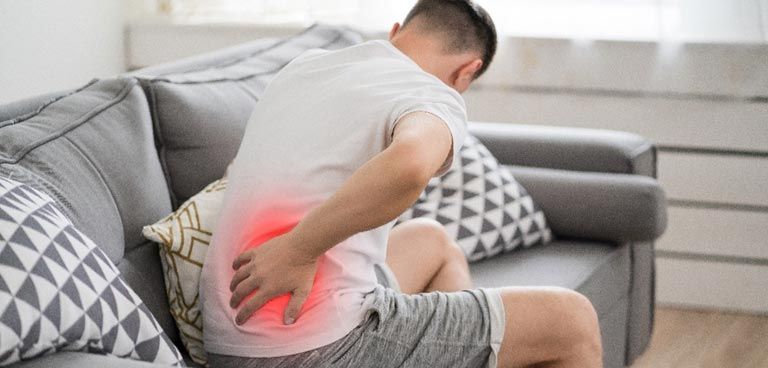 Health & Wellness
Health & WellnessPreventing Kidney Stones: Effective Strategies for a Healthier Life
Kidney stones are a common painful condition that can be experienced by anyone. These solid deposits of minerals and salts can form in the kidneys, causing agonizing pain as they move through the urinary tract. While some people are genetically more prediscovered to grow kidney stones, there are several things that we can do to help prevent these from forming in the first place. Making some lifestyle changes and simply being cautious of dietary practices can greatly reduce your chances of developing this painful condition.1.Stay Well-hydratedThe best way to try to prevent kidney stones is to keep hydrated. Staying well hydrated by drinking adequate water during the day helps to dilute materials that create stones in the urine.Minerals and salts are less likely to crystalize and form stones when urine is dilute. Their reason behind this is that the normal, reliable advice says that you ought to be drinking 8–10 glasses, or 2–3 liters, of water a day, but whose to say what this refers to when there are so many factors in your environment, level of activity, health conditions, etc. That will determine how hydrated you need to be. Those with a history of kidney stones are often advised to drink enough water to produce around 2.5 liters of urine per day. Water remains the best, but other fluids (like herbal teas and citrus-based drinks) can help with hydration, and possible prevention, in some cases, because citrate (found in citrus-based drinks) can help reduce formation of stones.2.Balanced DietDiet is also an important part of preventing kidney stones. A diet that is low in salt and animal protein may help prevent stone formation. Excessive sodium intake can raise the amount of calcium in the urine, a major component of many kidney stones. So it’s important to limit processed foods, canned soups and salty snacks. Moreover, decreased animal proteins (e.g red meat, poultry/eggs) consumption will help to decrease the urinary levels of uric acid(another contributor to stone formation). We can certainly reduce our intake of animal proteins, and replace with more plant-based proteins, like beans, lentils, and tofu.3.Get Enough CalciumCalcium is also misunderstood with regard to kidney stones. Although calcium is a component of many stones, avoiding calcium is not the answer. In fact, consuming adequate calcium through fooddairy products or fortified plant-based options — can help prevent stones. That’s because calcium attaches to oxalate in the intestines, where it prevents oxalate from entering the bloodstream and being filtered out through the urine, where it can lead to stone formation. But speaking of extra calcium, it is also one of the minerals which shouldn't be taken in excess as it increases stone risk.4.Take in Oxalate-rich FoodsAnother food-related factor is the consumption of foods high in oxalate.Foods that are high in oxalate contain a compound that can combine with calcium in the urine to make calcium oxalate stones — the most common type of kidney stones. Spinach, rhubarb, beets, nuts and chocolate are all high oxalate. That doesn’t mean you have to completely ban these foods, but moderation, as well as balancing these foods with calcium-rich foods, may help in stone formation.So in summary, the avoidance of food that would cause kidney stones, drinking lots of fluid and maintaining a healthy life style solves the puzzle of staying away from kidney stones. Well, here you can really reduce your risk of this painful condition as long as you drink enough water, reduce salt and animal proteins, take enough calcium, control oxalate-rich foods and weight. Though none of these approaches guarantee immunity from kidney disease, they help support these important organs while improving your quality of life. So if you’re prone to kidney stones (or at higher risk), always check with your doctor directly for more tailored advice. -
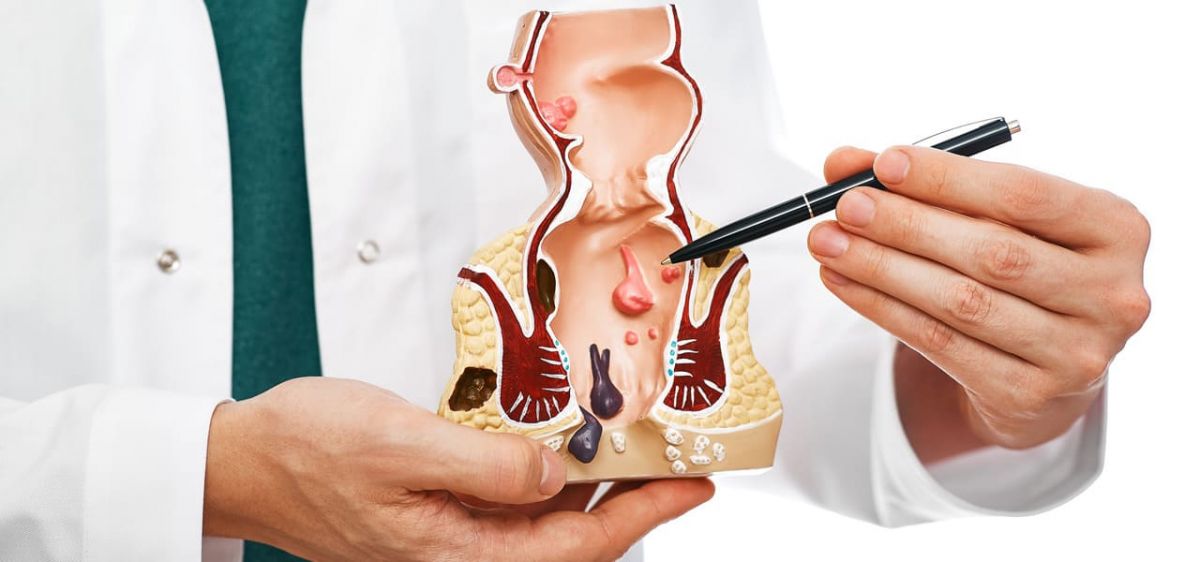 Health & Wellness
Health & WellnessTreatment Options for External Hemorrhoids
Hemorrhoids, while fairly common and usually treatable with a number of options that vary in severity, can be both highly annoying aswell as painful that the likes of using a cream can seem too little to go beyond when suffering from the condition. These swollen blood vessels around the anus can cause itching, discomfort, and bleeding; however, the right approach can reduce symptoms and help manage the condition. The treatment usually ranges from lifestyle changes and home remedies to medical surgery, depending on how serious the symptoms.1.Home and Lifestyle Remedies for SymptomsWe cantreat this condition first with lifestyle changes and home remedies. These steps are usually enough to relieve mild to moderate symptoms. Dietary fiber is one of the most effective management strategies for hemorrhoids. High-fiber diet dissolves the stool and help makes it drier to come out, you do not give so much strain in the bowel and that is one of the key reasons for the flare-ups of the hemorrhoids. It is best to incorporate more high-fiber foodssuch as fruits, vegetables, whole grains, and legumes into your daily meals. Consuming lots of water can also help ease bowel and soften stool and prevent constipation as well as help with regular digestion.2.Over-the-counter TreatmentsPeople can also useOTC options for external hemorrhoids. Topical creams, ointments and suppositories that include active ingredients like hydrocortisone or witch hazel can decrease itching and dial down inflammation.Instead, these widely available products can be used as directed to relieve discomfort. However, prolonged use of such medications can cause skin thinning and other side effects.3.Sitz BathsSitz baths — sitting in warm water for 10 to 15 minutes several times a day — can also help. Soaking a sore toe in warm water provides some relief of the affected area and reduces swelling while promoting healing. Self-administered and inexpensive, this treatment can be done at home and is particularly beneficial after a bowel movement.4.Medical TreatmentsWhere lifestyle changes and home remedies do not provideenough relief, medical treatment may be needed. More chronic or severe cases of external hemorrhoids may be treated in the office by a healthcare provider. One of the more standard procedures is rubber band ligation, in which a small rubber band is slipped over the base of the hemorrhoid to cut off blood supply so that it shrinks and falls off. This is usually reserved for internal hemorrhoids, but in some external cases, it may be appropriate, as well.5.SclerotherapySclerotherapyis also an effective treatment, which means injecting a chemical solution to make the hemorrhoid shrink. This is a more conservative approach, and it may apply to small hemorrhoids. For larger or troublesome external hemorrhoids, I may recommend a hemorrhoidectomy, surgery to remove the hemorrhoid.This option is more invasive than the others, however it is often the most effective option for more serious cases and gives long-term relief.6.Laser TherapyMore recently, minimally invasive procedures — laser therapy or infrared coagulation — have gained in popularity. These procedures use heat or light to shrink the hemorrhoid tissue and carry less pain and faster recovery than traditional surgery. But theyaren't for everyone, and a health care provider can help decide the best action to take given particular circumstances.7.PreventionPreventing externalhemorrhoidsinvolves frequentexercise, a high-fiber diet, and adequate hydration lowers the risk of first onset of hemorrhoids or flare-ups. It’s also important to avoid sitting for too long or straining while going to the bathroom.So, external hemorrhoids can be cured with a healthy lifestyle, home remedies, and medications. Mild cases can generally be managed through dietary changes or over-the-counter treatments; more advanced cases may need professional medical interventions. It’s crucial to identify the right treatment plan and to manage symptoms appropriately, so it’s important to see a health care provider. Yes, you can lead a life free of external hemorrhoids and this is how you can do it by gaining important knowledge and putting in the necessary care. -
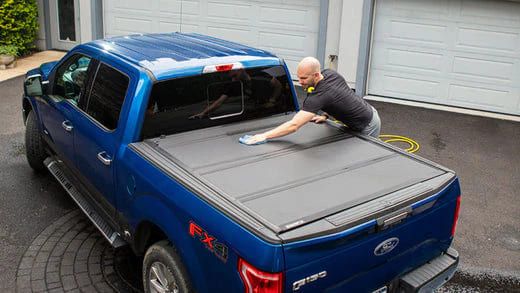 Automotive
AutomotiveHow to Maintain the Tonneau Cover Well
Tonneau covers are must-have things for truck owners, because they can help the trucks from being broken by a lot of elements. In order to ensure its long turn operation, the daily upkeep is essential. If you ant to know how to care for a tonneau cover, here are some helpful tips.1.Regular CleaningDirt and debris generally accumulate over time on the tonneau cover and cause scratches as well as wear. They need regular cleaning in order to remain in good condition. Lightly clean the surface with mild soap or automotive cleaner and a soft cloth or sponge. Avoid abrasive cleaners/oil that could harm the finish. If your covers are made of vinyl or fabric, use specific cleaners designed for those. Rinse it thoroughly with water and dry it with a microfiber cloth so you don't get water spots.2.Inspect for DamageRegularly inspect your tonneau cover for signs of wear (cracks, tears or rusted loose hardware). That can help you fix whatever is out of whack, and prevent major damage and costly repairs later on. Check for loose hinges, seals, and fasteners if you notice any damage, first check for any damage and if there is any then repair or replace immediately.3.Protect from Extreme WeatherWhile tonneau covers are generally made to handle the weather, prolonged exposure to extreme heat, cold, or UV rays will eventually breakdown the fabric. Control what you can to limit exposure, including putting your truck in a garage or shaded area when you can. If it’s on a vinyl or fabric cover, a UV protectant spray may help protect that material from fading and cracking.4.Avoid OverloadingTonneau covers aren't made to support much weight. Do not stack heavy items on the cover. Something heavy placed on top of the cover can make it bend or warp, causing damage to its composition. In order to avoid damage of the cover, always stay within the manufacturers weight limit guideline.5.Check Seals and Weather StrippingKeeping the dirt out of your truck bed is crucial, and that starts with the tonneau cover seals and weather stripping. Inspect these components for wear or damage regularly. To keep your vacuum system seals tight and leak-free, and to help prevent cracking, you can reinstall any worn or cracked seals. Well-fitting seals also reduce wind noise on the move.6.Keep Safe When Not in UseIf you need to take off the tonneau cover, store in a cool place, away from humidity and direct sun. The same goes for keeping it “bent”or “rolled”too tightly, as that can create creases or damage the material. If it's hard covers, put them anywhere flat or it will get bent.7.Follow the Manufacturer's GuidelinesTonneau covers are not created equal so its vital to adhere to the manufacturers recommendations for their maintenance. Consult a user manual for cleaning products, lubrication intervals and care instructions specific to your covers material and design. Following these in very essentials it will not void the your warranty and also very simply way of doing the performance.8.Address Rust PromptlyRust is something you may worry about with tonneau covers that include metal components, frames, or hinges. If spots of rust do occur, scrub them off immediately with a rust remover or fine-grit sandpaper. Apply rust-resistant primer and paint on the metal to protect from rusting.9.Seasonal MaintenanceMaintaining a tonneau cover comes with challenges unique to each season. Vigorous brushing of snow and ice buildup in winter must be done carefully to prevent damage to the cover. Keep the cover clean in the summer and keep harmful UV rays off it.In short, these are the tonneau cover maintenance tips to ensure your tonneau cover lasts for a long time and looks and performs the way it should. If you use your truck for carrying things, you need to buy a tonneau cover for your truck because it will not only provide a smooth surface for the things you keep but will also enhance your vehicle.
Featured Articles
-
 Finance
FinanceWhat to Consider When Opening an Online Bank Account
-
 Home & Garden
Home & GardenVersatile Magic of Adding a Coffee Table to Your Space
-
 Travel
TravelMust-Play Attractions at Universal Studios Hollywood
-
 Health & Wellness
Health & WellnessUnderstanding Excessive Hand Sweating: Causes, Symptoms and Solutions
-
 Travel
TravelBenidorm All-Inclusive Holidays Paradise-like Beach Experiences
-
 Travel
TravelPlanning a Family Vacation: A Guide to Creating Lasting Memories
-
 Finance
FinanceUse a Reverse Mortgage Calculator to Get the Best Estimate of Your Loan
-
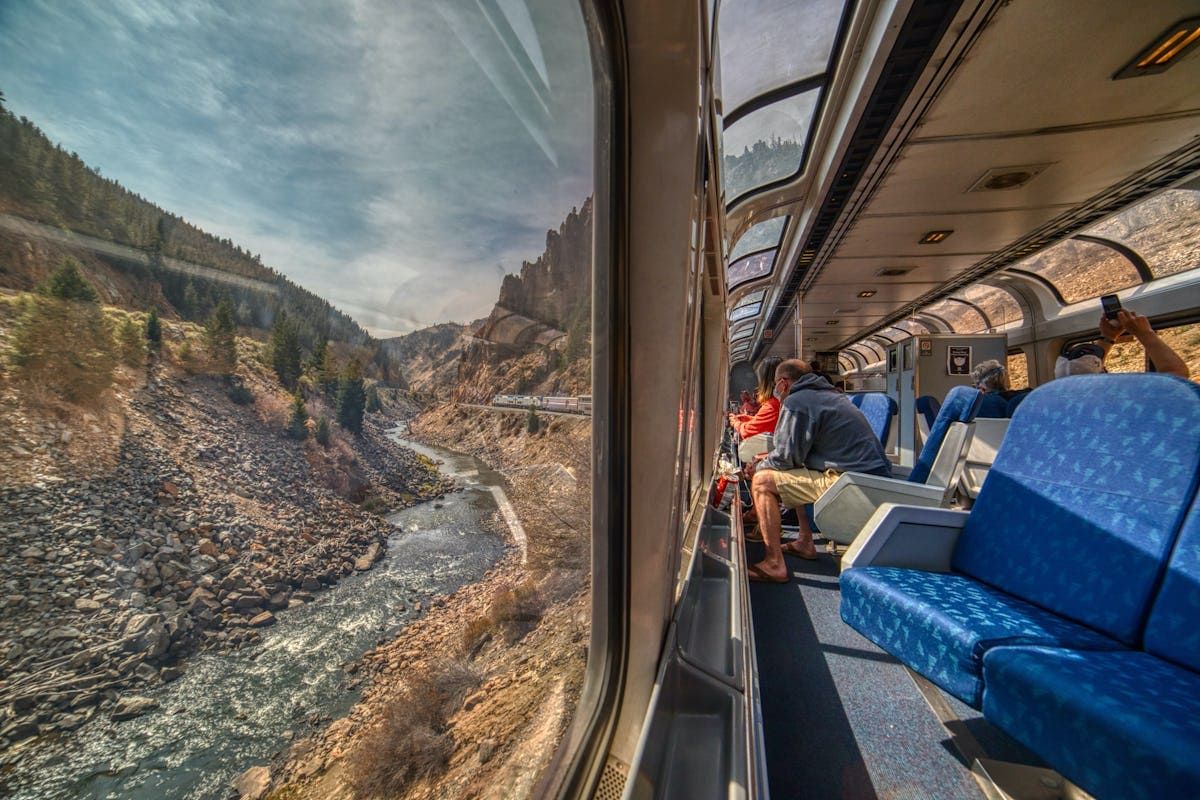 Travel
TravelDiscovering America's Heartbeat: Traveling With Amtrak




